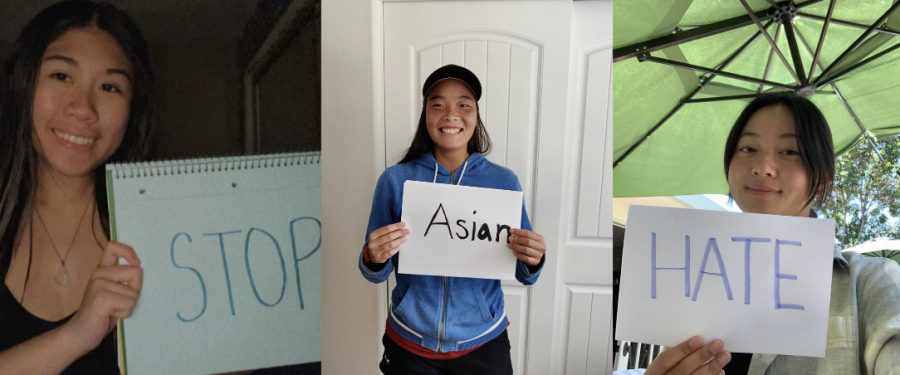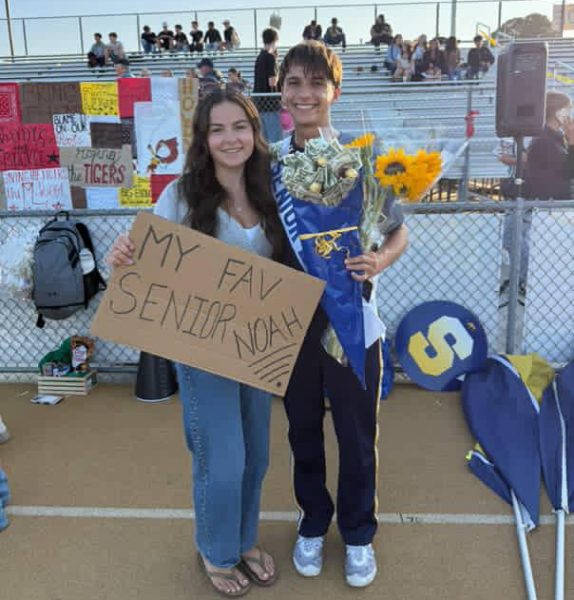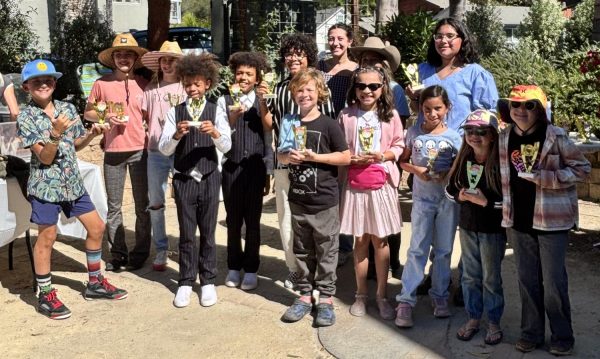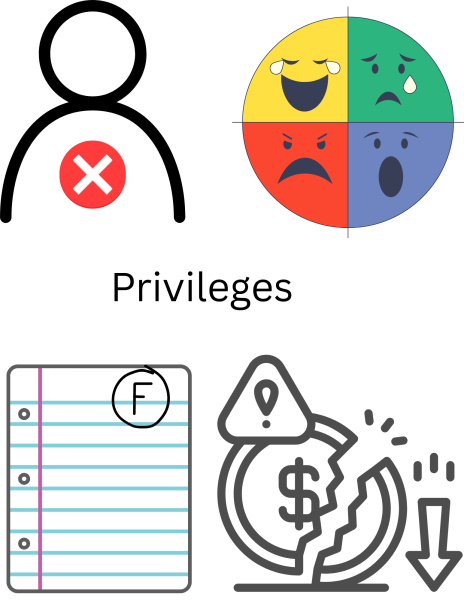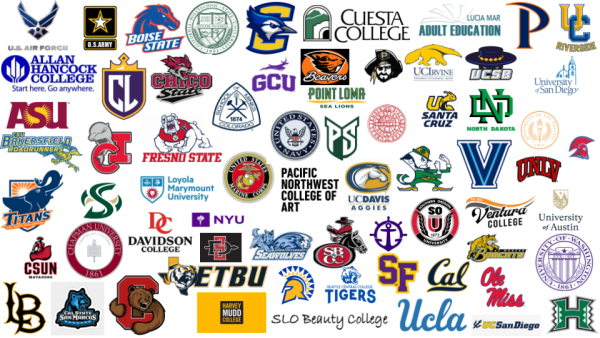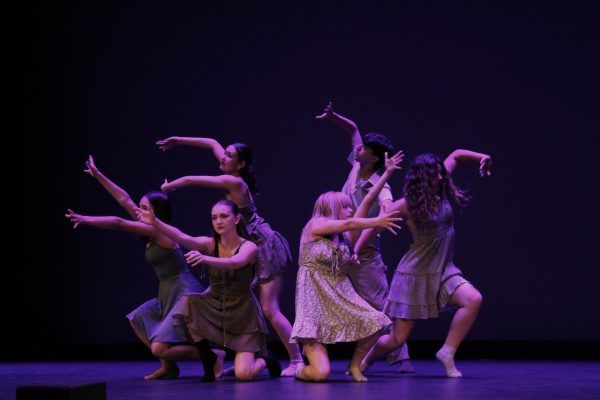The rising generation of Asian Americans and Pacific Islanders join the movement to end racism and violence
As those who fought before us, we will not be silent.
Photo Courtesy of Celina Jane, Amber Wey, and Ingrid Chen
Students from different schools stand for one cause, to “Stop Asian Hate”
Asian Americans and Asian immigrants have experienced discrimination and racial harassment for over 150 years.
During the 1850s, thousands of Chinese immigrated to California, seeking fortune and success, but the Gold Rush was coming to an end so the majority went to work for a dollar a day on the transcontinental railroad. They made up 90% of the workforce and watched hundreds of their fellow Chinese laborers die because of the harsh winters and back-breaking work.
In 1870, there was an increase in the white working-class leading to the great anti-Chinese movement which involved lynchings, burnings, and verbal assaults of “The Asians must go!”
In 1882, the Exclusion Act prohibited Chinese laborers and made Asians the first undocumented immigrants.
From 1942 to 1945, all Japanese residents were required to be incarcerated in isolation camps, and Japanese-American soldiers weren’t aware of their own country putting their loved ones in a prison.
Around this time, many Asian immigrants and “suspected” Asian traitors were sent to Angel Island where some would reside for years facing harsh punishment just for wearing the face of the enemy.
Today, Asian Americans experience a significant increase in harassment and violence due to COVID-19 being socially deemed their fault with former President Trump referring to it as the “Chinavirus”, pushing the anti-Asian narrative. Even at Arroyo Grande High School, the Asian student body fears they or someone they know will be the next victim of a hate crime.
“The dramatic increase in violence against the Asian community has made me afraid. Not only for myself but especially the vulnerable part of my family, being the elderly. I am afraid that with this increase it could happen to anyone, myself or someone I love,” said Celina Jane.
Jane, a Filipino-American is a junior at AGHS and hopes to one day attend a four-year university. Over the past year, Jane has spread awareness via social media and word of mouth about “Stop Asian Hate”, a growing movement to combat the increase in violence and racism against Asian Americans and Pacific Islanders. Jane actively supports the Asian Rights Movements not only because of her race, but for the need to stop the ignorance and hate for future Asian-Americans, so they can truly feel comfortable with their culture and who they are.
“One time, I was in a store with my mom who is fluent in Tagalog…and as she was speaking to me, a lady behind us told her to speak the ‘American language’. This immediately was a wake-up call for me, realizing how much racism actually surrounds us,” said Jane.
Comments such as “speak the American language” take root and can greatly affect someone even if a comment was a joke or meant to be taken lightly.
“I want people to remember every joke, every offhand comment, every slur that they have used in the past, and realize that the Asian American or other POC whom they use it against almost certainly remembers it — and is hurt by it — to this day. I want them to understand that these things will stick with us in a way that we don’t have the privilege of brushing off. I want them to see that even if they can’t go back in time and change their actions at that moment, they can change their behavior going forward,” Ingrid Chen expressed.
Chen is a senior at San Luis Obispo High School and will attend Stanford University in the fall. Growing up in a predominantly white community and school has led to some instances of disrespect and ignorance against her race and ethnicity.
“There’s obviously been a lot of racist jokes about eating dogs, having slanty eyes, being a ‘ching chong’, etc. However, the incidents that have stuck with me the most were really just instances where people seemed to emphasize or fetishize my Asianness. For example, once, a complete stranger — a white man — approached me and my family on the street and began speaking (very bad) Mandarin to us. When we responded with confusion at his forwardness, he stopped, taken aback, and said, ‘Don’t you speak Chinese?’” said Chen.
In the recent Atlanta, Georgia Spa shooting, the shooter killed eight people, and because of his fetish, among the dead were six Asian women. He didn’t see mothers, wives, daughters, or loved ones. Some say it was a blatant hate crime, others say it had nothing to do with race, while some claim “he just had a bad day” as if it justifies his wrongs.
“I think that this was absolutely a hate crime.” said Chen. “It was a hate crime against Asian Americans; a hate crime against women. Whether or not his motivations were purely to murder women or to murder Asians is irrelevant. The reality for Asian American women is that these two identities are inseparable. We’re sexualized and fetishized because of our race, and regardless of the murderer’s intent, Asian American women were his target for a reason.”
The Asian community has faced many challenges and many have broken the racial barriers and are now prominent people for young children to look up to, someone representing their race, ethnicity, and culture with pride and respect.
“I feel inspired when I hear about the success of other Asian women because they all faced adversity and managed to push through and achieve their goals,” said Amber Wey.
Wey, is Taiwanese and a junior at Orcutt Academy High School working towards attending medical school to one day become a cardiothoracic surgeon, proving to those who doubted her that she has what it takes to overcome obstacles and achieve success.
All three students attend predominantly white schools where the Asian body doesn’t even make up 10% of the student population. The pressure for Asian students to conform to social norms and abandon traditional customs and culture is strong.
“I hope that the Asian American movement creates security for me and my family. Not only physical security in the sense of violence, but also feeling good in my own culture,” said Jane. “Too often I find myself pushing my culture away in order to fit in with the rest of America even though that isn’t right.”
Chen also mentioned, “I hope that someday, Asian American kids will be able to grow up and not feel as if they have something to prove — their Americanness, their intelligence, or even their humanity — and that they don’t ever have to experience the feelings of alienation and hurt that nearly every Asian American person I know has experienced.”
Being born in America doesn’t seem to matter much when your skin is a different color, or your features don’t match those of “true” citizens. Even though I am a natural-born American, classmates would tease, “Go back to the rice fields” because I never truly belonged in their eyes.
“If no one stands up, nothing will change. If we don’t push back against the forces of white supremacy, our rights and our safety will be continually infringed upon, because racism is easy enough to perpetuate that it never stops pushing the boundaries of what is acceptable,” Chen stated.
150 years later, the fight continues.

Madelyn Ferreros is a senior this year and is the Head of the Sports Department of the Eagle Times. This will be her first year being a part of the Eagles...

